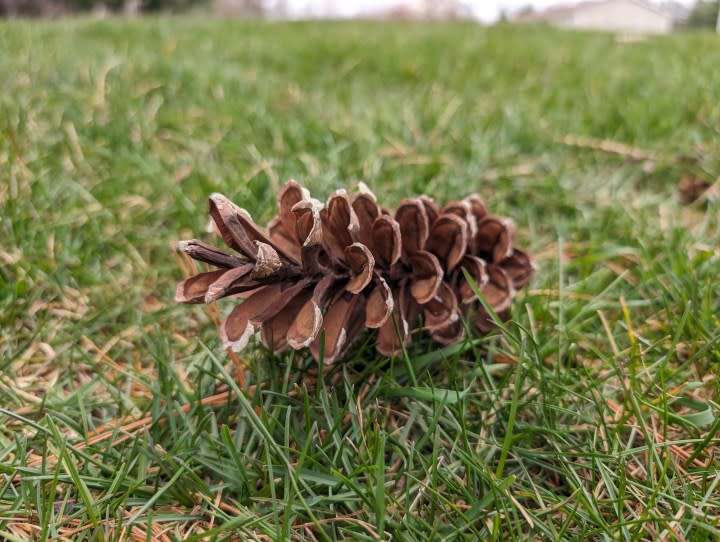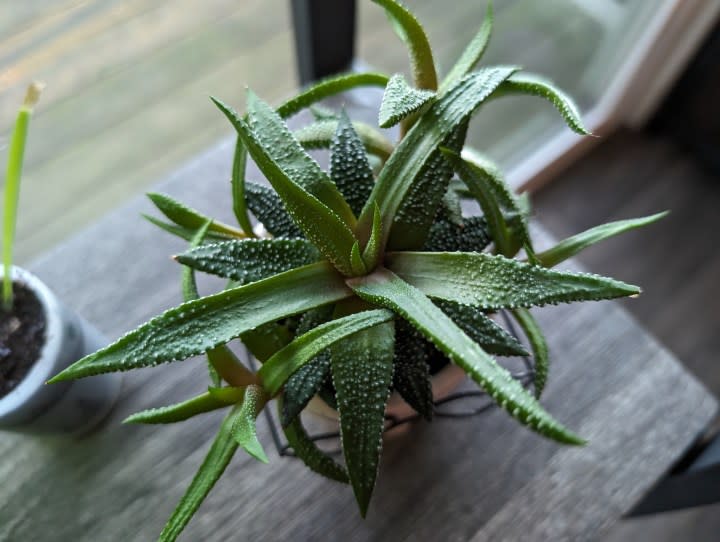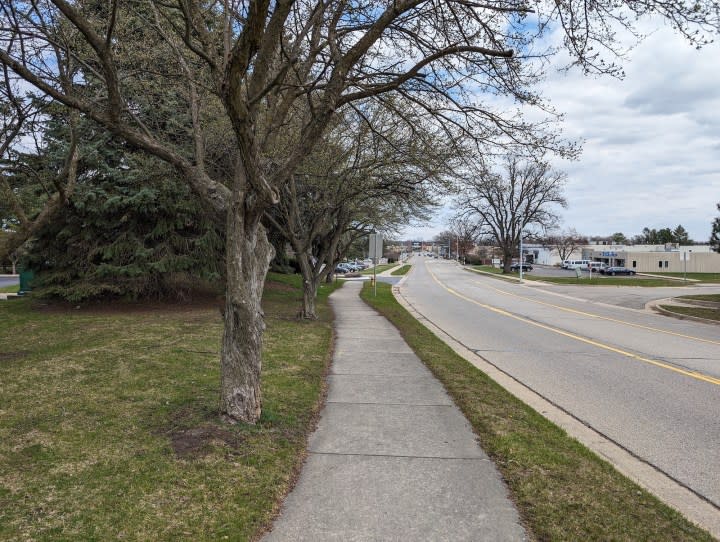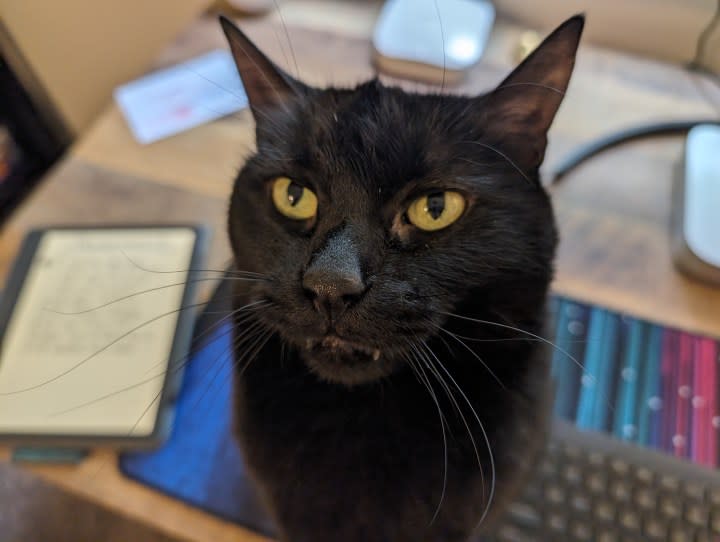The Google Pixel 8 is better than it should be in 2024
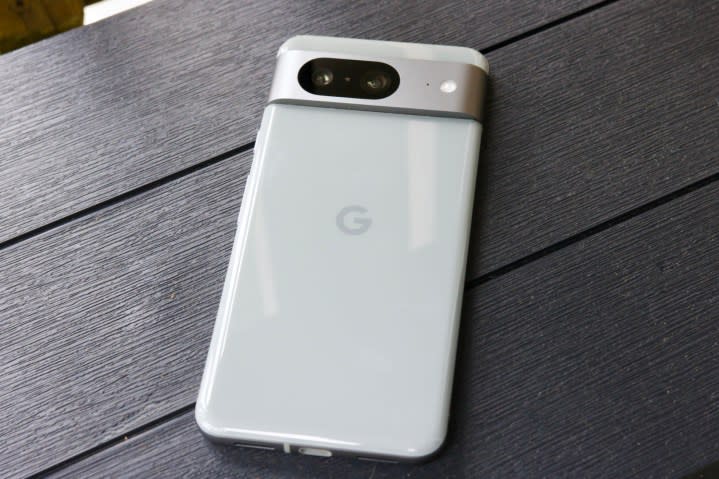
The Google Pixel 8 was one of 2023’s best smartphone releases. The compact size, excellent camera, and top-notch software made it an extremely tempting purchase — especially with a retail price of just $699.
But we’re now five months removed from the Pixel 8’s release, and a lot has changed. Samsung released its Galaxy S24 series, OnePlus has been on a tear, and we’re quickly getting a good idea of what the Google Pixel 9 will look like. Given all that, I decided to pop my SIM card back into the Pixel 8 to see how the phone holds up in 2024.
What I still love about the Google Pixel 8
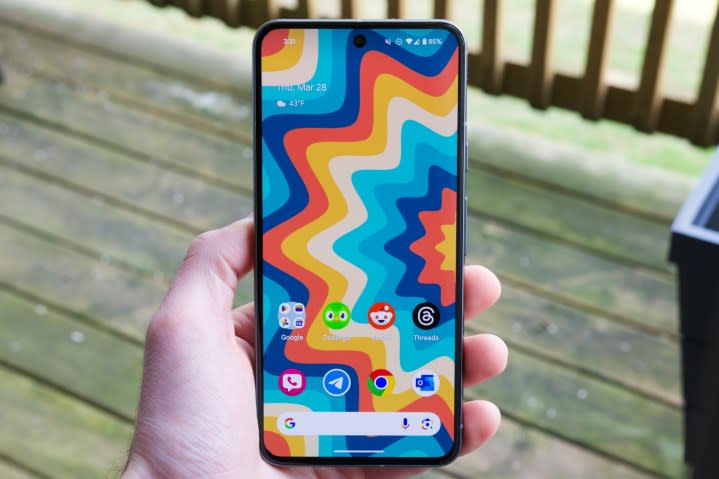
It had been a while since I last used the Google Pixel 8, but in the past couple of weeks of revisiting the phone, I never once felt out of step with it. The Pixel 8 is such an easy phone to live with. There are no steep learning curves, no weird software hurdles to overcome, and no game-breaking hardware issues. Everything about the phone just works, and it’s as easygoing in April 2024 as I remember it being in October 2023.
The Pixel 8 has a few particular strengths, one of which is its size. As someone who regularly uses the iPhone 15 Pro Max, coming back to the Pixel 8 has been a treat. It slides into my pocket with room to spare, and I can use it one-handed without a problem. But at 6.2 inches, the screen never feels too cramped. I’ve watched numerous YouTube videos and played too many Marvel Snap matches on the phone over the last couple of weeks, and not once have I felt like I needed more space. It’s a really lovely size, and it’s one of my favorite things about the phone.
Another reason the Pixel 8 has been so easy to revisit is its software. Google’s flavor of Android 14 remains one of my favorites. It’s clean, simple, and just so easy to use. Unlike Samsung’s One UI or OnePlus’ OxygenOS — which I feel I have to fine-tune and tweak to work the way I want it to — Google’s Pixel software is effortless. I don’t have to hide duplicate apps, ignore dozens of features I’ll never use, or anything of the sort. It’s just wonderful.
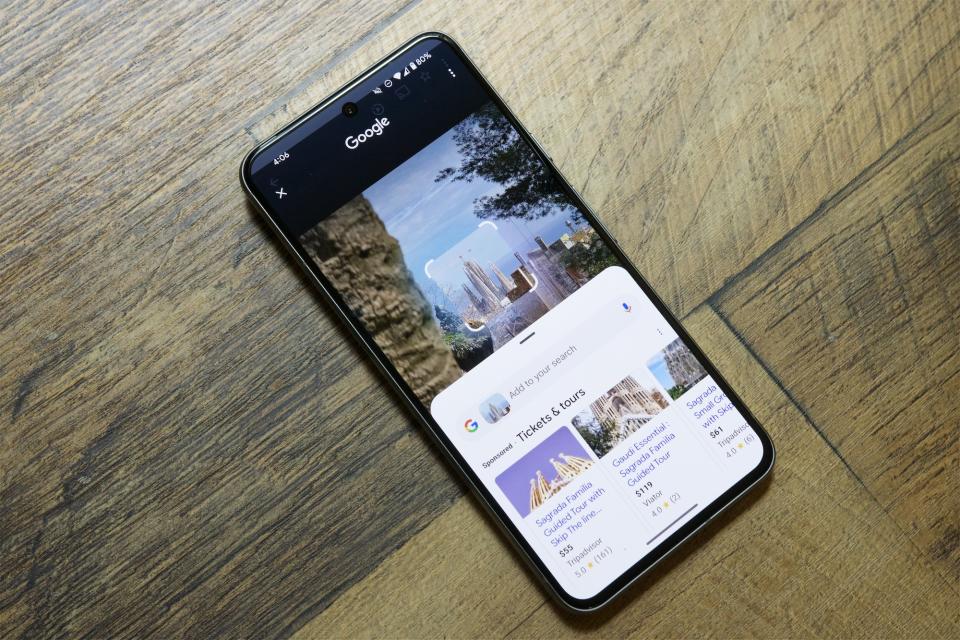
Since the Pixel 8’s release, one of the biggest new software features it’s received is Circle to Search. After launching on the Galaxy S24 first in January, Circle to Search has been a surprisingly handy tool on the Pixel 8. It’s not something I use constantly, but whenever I do, it impresses me. It’s also my favorite kind of Pixel feature. It’s useful when I want to use it, but when I don’t need it, it disappears from sight.
And, of course, there’s the camera. The 50-megapixel main camera is still a joy to shoot with. It’s far from the most advanced camera system on a phone today, but it remains one of my favorites.
Is it the best camera for zooming? Not really. The 2x zoom shortcut in the camera works well, and even at 8x zoom — the maximum zoom distance for the phone — pictures are still usable. But if you want to go any further, you’re out of luck. The 12MP ultrawide camera also isn’t the very best we’ve ever seen. But you know what? None of that really bothers me when I’m using the Pixel 8. If I take a picture with the phone, chances are I’m going to be happy with the end result. The Pixel 8 handles nighttime shots very well; it handles moving subjects easily, and its colors are just lovely — striking a great balance of realism and vividness.
Lastly, Google’s Magic Editor continues to impress. Although I don’t care about moving subjects in my photos or changing what the sky looks like (although those features are impressive), its object eraser tool is incredibly powerful. Whether it’s a plastic bag, a trash can, or some other unsightly object, Magic Editor still does a great job of eliminating these things and filling in the background with surprising accuracy. It isn’t always perfect, but it’s one AI feature I really do miss when I’m on my iPhone.
My biggest issues with the Pixel 8
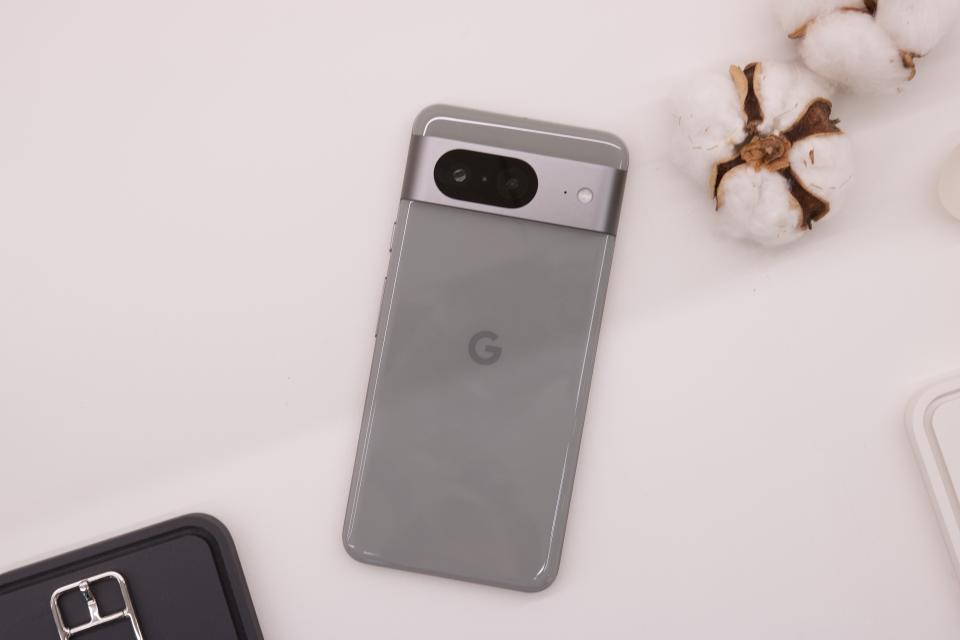
That’s a lot of praise for the Google Pixel 8! Does that mean it’s perfect? Not exactly. For as much as I enjoy using the Pixel 8, there are some very apparent shortcomings with the phone.
Surprisingly, one of them is the design. As much as I love the size of the Pixel 8, I’m finding other aspects of the design frustrating — specifically, the rounded corners. I think they give the Pixel 8 a very cute, soft aesthetic. In practice, however, they can make holding onto the phone weirdly challenging. It’s a comfortable phone that nestles into my palm, but I often feel like I have to readjust my grip.
Maybe it’s because I’ve grown used to flat edges on phones like the iPhone 15 Pro and Galaxy S24 Plus, but moving back to the Pixel 8’s smooth, rounded frame hasn’t been completely ideal. Rumor on the street is that the Google Pixel 9 is adopting a very Apple and Samsung-like flat frame, and I’m really looking forward to that.
Speaking of issues, let’s talk about battery life. It’s … fine. When Andy reviewed the Pixel 8 last October, he managed to get “deep into a second day” of use on a single charge. In my experience, the Google Pixel 8 lasts for about a day, and that’s it. It’s perfectly fine battery life, but in a world where similarly priced phones like the OnePlus 12R have much better endurance, it’s a little bit harder to overlook.
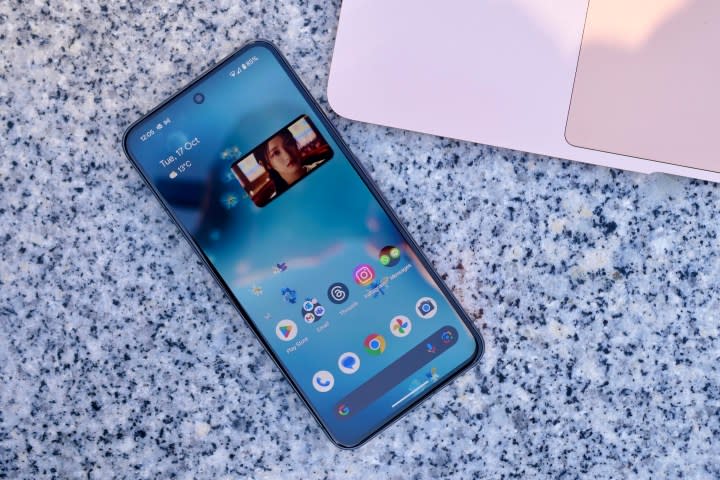
Making it more irritating is how slowly the Pixel 8 chargers. 27W wired charging is not an impressive number in 2024. Once again, when there are options like the OnePlus 12R with 80W charge speeds, going back to something this tepid can be frustrating. I still love having the option for wireless and reverse wireless charging, but I really wish I could juice up the Pixel 8 a lot faster than I’m able to now.
Finally, I’d like to talk about the Tensor G3 chip powering the Google Pixel 8. It’s continued to be a substantial improvement over its Tensor G2 predecessor. It generally runs smoothly, it doesn’t get uncomfortably hot, and I’ve not had nearly as many bugs/glitches as I did with my Pixel 7 Pro. However, that’s not to say it’s perfect.
While not as big of an issue as it was for the Pixel 7 series, the Google Pixel 8 does still get warm — noticeably more so than phones with recent Qualcomm chips. Plug it in to charge for a few minutes or play a couple of rounds of Marvel Snap, and there’s no ignoring the Pixel 8 heating up. I’ve also encountered a handful of small software issues here and there — such as apps briefly locking up for a couple of seconds — and games don’t feel quite as fluid as they do on a Snapdragon 8 Gen 3-powered phone. It’s nothing game-breaking, but they’re all reminders that Google still has plenty of room to grow with Tensor.
Is the Pixel 8 still worth it in 2024?
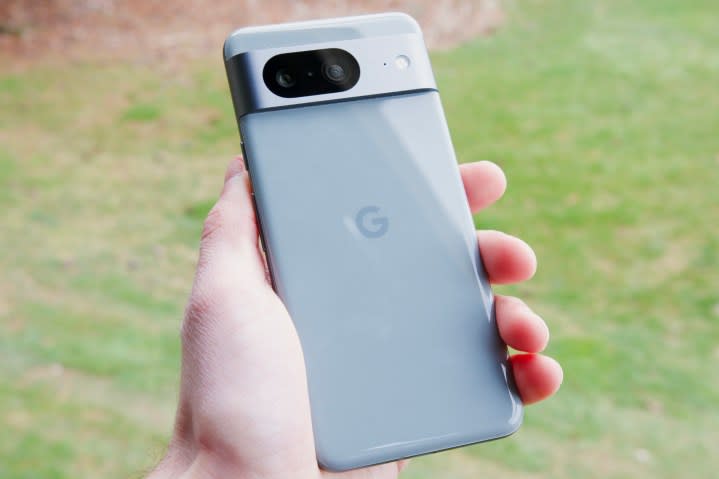
Revisiting the Google Pixel 8 has been an interesting experience. The logical part of my brain knows that if I were recommending a phone to someone today, there are better choices out there.
The Samsung Galaxy S24 costs just $100 more and has a more capable processor. It also adds a proper telephoto camera, better battery life, a nicer screen, and Samsung’s own suite of AI tricks. The OnePlus 12 shares the Pixel 8’s $699 retail price (when you take advantage of OnePlus’ excellent trade-in promo) and has its own slew of benefits — be it the Snapdragon 8 Gen 3 chip, 80W wired charging, or its own excellent camera system. For many people, either of those two phones is likely a smarter purchase over the Pixel 8.
But even so, there’s something I find so welcoming about the Pixel 8. Maybe it’s Google’s top-notch software. Perhaps it’s the tiny, adorable size that’s a true rarity in 2024. Part of it might be the oh-so-good camera quality. On a technical level, the Google Pixel 8 has its flaws. But when I pick up the Pixel 8 and am reminded of all the good it does, those issues fade into the background.
I need to remove my SIM from the Pixel 8 to test another phone, but I am reluctant to do so. Simply put, I don’t want to stop using the Pixel 8. And for all the ways we can analyze and review a smartphone in 2024, I think that’s one of the best signs Google did something right.

